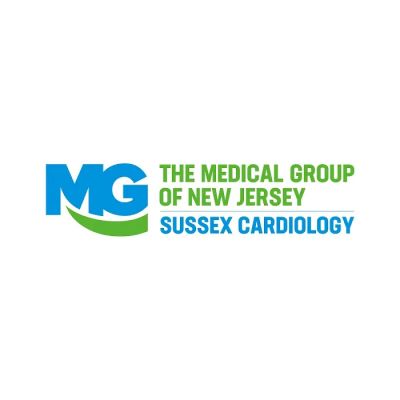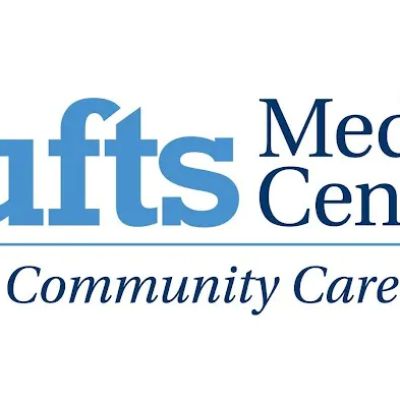- Introduction: The Importance of Understanding Heart Disease
- Early Stage of Heart Disease
- Intermediate Stage of Heart Disease
- Advanced Stage of Heart Disease
- Diagnosis and Treatment at Each Stage
- Preventive Measures to Stop Heart Disease Progression
- Conclusion: Managing Heart Disease Effectively
Introduction: The Importance of Understanding Heart Disease
Heart disease is a leading cause of death worldwide, affecting millions of individuals each year. It encompasses a range of conditions that affect the heart's function, and its progression typically occurs in distinct stages. Understanding the stages of heart disease is crucial for early intervention, treatment, and prevention strategies.
The earlier heart disease is detected, the more effective the treatment and lifestyle changes can be in slowing its progression and improving quality of life. In this article, we will explore the various stages of heart disease, from its early signs to the most advanced phases. We will also look at the impact of early detection, the treatments available, and how lifestyle adjustments can prevent further damage. Whether you're concerned about your heart health or seeking information for a loved one, this guide provides valuable insights into understanding heart disease and taking proactive steps towards better heart health.

Early Stage of Heart Disease
The early stages of heart disease often present few obvious symptoms, which is why it is important to monitor for subtle signs. During this phase, the heart begins to show early signs of stress or strain, but it can still function relatively well.
Atlanta Heart Specialists
atlanta heart specialists
4375 Johns Creek Pkwy #350, Suwanee, GA 30024, USA

1. Risk Factors and Warning Signs
During the early stage of heart disease, factors such as high blood pressure, elevated cholesterol levels, and poor lifestyle habits like smoking or an unhealthy diet may begin to affect the cardiovascular system. However, the individual may not experience symptoms until more damage is done. It's important to keep an eye out for common early warning signs, which include:
- Occasional shortness of breath, especially after exertion
- Fatigue or feeling unusually tired after light activity
- Lightheadedness or dizziness
2. Diagnosing Early-Stage Heart Disease
In the early stage, heart disease can be detected through routine checkups. Blood pressure readings, cholesterol tests, and electrocardiograms (EKGs) can reveal early signs of strain on the heart. For those with risk factors, preventive measures such as lifestyle changes or medications to lower blood pressure and cholesterol may be prescribed to prevent progression.
Intermediate Stage of Heart Disease
As heart disease progresses, it enters the intermediate stage. During this phase, the symptoms become more pronounced, and the heart may begin to show significant signs of damage. The heart’s ability to pump blood effectively may start to decline, leading to a range of issues related to circulation.
1. Symptoms of Intermediate-Stage Heart Disease
At this point, the symptoms of heart disease are more noticeable and may include:
- Frequent chest pain or discomfort, especially during physical activity
- Swelling in the legs, ankles, or abdomen due to fluid retention
- Difficulty breathing, even at rest or during minimal exertion
- Irregular heartbeats or palpitations
2. Impact on Daily Life
In the intermediate stage, patients may find it difficult to engage in normal daily activities due to fatigue, breathlessness, and discomfort. Lifestyle modifications, such as adopting a low-sodium diet, regular exercise (as recommended by a doctor), and medications to control heart rate, blood pressure, and fluid retention, are essential to managing the condition at this stage.
3. Diagnosis and Medical Interventions
Doctors use a variety of diagnostic tests, including echocardiograms and stress tests, to assess how well the heart is functioning. Medications such as beta-blockers or angiotensin-converting enzyme (ACE) inhibitors may be prescribed to manage symptoms and slow progression. In some cases, lifestyle changes are no longer enough to control the disease, and more invasive treatments, such as angioplasty or bypass surgery, may be necessary to improve blood flow.
Advanced Stage of Heart Disease
The advanced stage of heart disease is marked by severe damage to the heart’s ability to function properly. By this point, the heart may be struggling to pump blood effectively, leading to complications such as heart failure.
1. Symptoms of Advanced-Stage Heart Disease
In the final stages, heart disease symptoms are often severe and include:
- Severe shortness of breath, even at rest
- Chest pain that occurs frequently, even without physical exertion
- Persistent swelling in the legs, feet, and abdomen
- Confusion or difficulty concentrating due to poor blood circulation to the brain
- Fatigue and weakness that make it difficult to perform even simple tasks
2. Treatment Options for Advanced Heart Disease
At this stage, the focus shifts to managing symptoms and improving quality of life. Medications to regulate heart function, diuretics to reduce fluid buildup, and other interventions may be used. In some cases, patients may require advanced treatments such as heart transplantation or the implantation of a heart pump (ventricular assist device, or VAD).
3. Palliative Care and End-of-Life Decisions
For those with advanced heart disease that cannot be managed through medical interventions, palliative care may be an option. Palliative care focuses on providing comfort and improving the quality of life for patients, addressing pain, discomfort, and emotional well-being. End-of-life decisions are an important part of the discussion in advanced stages, and patients and families should work closely with their healthcare team to determine the best course of action.
Diagnosis and Treatment at Each Stage
Early diagnosis and treatment of heart disease are crucial to slowing its progression and improving patient outcomes. The stages of heart disease require different approaches to treatment, but the goal is always to minimize symptoms, reduce the risk of complications, and enhance the patient’s quality of life. Diagnostic tools such as blood tests, EKGs, stress tests, and imaging are essential in detecting the condition at each stage, while medications, lifestyle changes, and medical procedures can help control and manage the disease as it progresses.
Preventive Measures to Stop Heart Disease Progression
While the stages of heart disease are inevitable for some, preventive measures can significantly reduce the risk of developing heart disease or slow its progression. These include:
1. Healthy Diet
Adopting a heart-healthy diet rich in fruits, vegetables, whole grains, and lean proteins can help lower cholesterol and blood pressure. Reducing sodium intake and avoiding processed foods also play a crucial role in preventing heart disease.
2. Regular Exercise
Engaging in regular physical activity, such as walking, cycling, or swimming, helps strengthen the heart, improve circulation, and reduce stress. Aiming for at least 30 minutes of moderate exercise most days of the week can have a profound impact on heart health.
3. Smoking Cessation and Stress Management
Quitting smoking is one of the most important steps in preventing and managing heart disease. Additionally, managing stress through relaxation techniques such as yoga, meditation, or mindfulness can help reduce the strain on your heart.
Conclusion: Managing Heart Disease Effectively
Understanding the stages of heart disease is key to managing the condition and improving outcomes. Whether you are in the early stages, middle stages, or facing advanced heart disease, early detection and treatment can make all the difference. By maintaining a heart-healthy lifestyle, working with healthcare providers, and staying proactive about your health, you can manage heart disease effectively and live a fulfilling life.
For more information on heart disease management, tips for maintaining heart health, and the best products to support your journey, visit [HeartCare Hub]. We offer a range of resources and recommendations for improving your heart health at every stage.






















Deborah Heart and Lung Center
deborah heart and lung center
200 Trenton Rd, Browns Mills, NJ 08015, USA